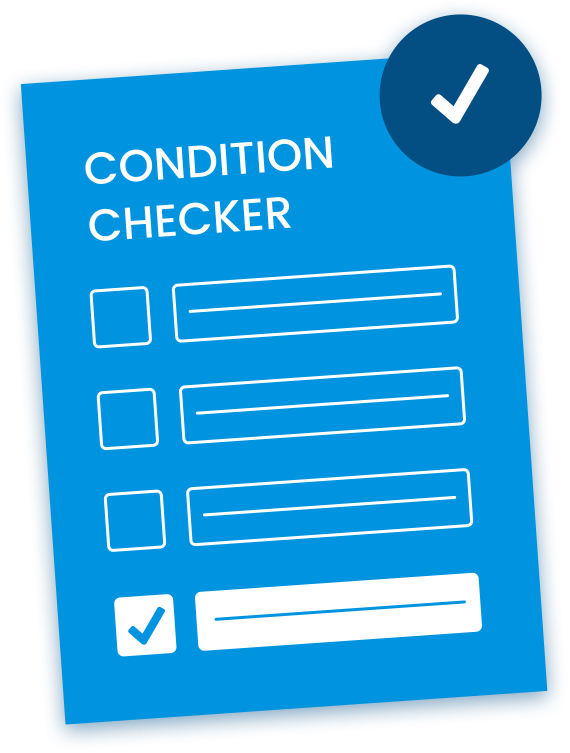Rheumatoid Arthritis
Find out which possible conditions you may be suffering from by trying our 2-min Guided Pain Assessment Form!





If you are someone who experiences chronic joint pain, stiffness, and swelling, you may be suffering from rheumatoid arthritis in New Jersey. This autoimmune disease can be debilitating, affecting your daily activities and overall quality of life.
At NJ Spine & Orthopedic, our team understands the struggles you may face and is dedicated to providing the best treatment options available to alleviate your symptoms and improve your overall well-being. Our team of experienced orthopedic specialists is committed to helping you find relief from the pain and discomfort of rheumatoid arthritis, and we offer a variety of treatment options to address your individual needs.

Find your condition with our 2-minute Condition Checker.
Rheumatoid arthritis is a chronic inflammatory disorder that primarily affects the joints, causing painful swelling, stiffness, and decreased mobility. The condition occurs when the immune system mistakenly attacks the synovium, the lining of the membranes that surround your joints, leading to inflammation and eventual damage to the joint and surrounding tissues.
This can result in joint deformities, bone erosion, and even systemic complications, affecting various organs such as the heart, lungs, and eyes.
Common symptoms of rheumatoid arthritis include:
These symptoms can be persistent or come and go in flare-ups, leading to difficulty in performing everyday tasks and activities, such as getting dressed or walking upstairs. In addition to joint symptoms, rheumatoid arthritis in New Jersey can also affect other parts of the body, such as the lungs, heart, and blood vessels.
The first step in getting a diagnosis of rheumatoid arthritis in New Jersey is to schedule an appointment with your doctor. Your doctor will perform a physical examination and discuss your symptoms with you. They may also order blood tests to check for specific markers that can indicate the presence of rheumatoid arthritis.
Along with these tests, our team may recommend additional imaging studies such as X-rays or ultrasounds to further evaluate your joints and their condition. These can help our team identify any signs of inflammation, joint damage, or other abnormalities that may be indicative of rheumatoid arthritis. Once we have a clearer understanding of your symptoms and the results of these tests, our team will work with you to develop a personalized treatment plan.

Discover which treatment options are right for you with our Treatment Finder.
When it comes to treating rheumatoid arthritis, there are a variety of options available. Our team will work closely with you to develop a comprehensive treatment plan tailored to your individual needs and goals. We utilize a patient-centered approach, so we prioritize your input and preferences when making decisions about your care. Some common treatment options include:
Several types of prescription medication may be recommended for managing your rheumatoid arthritis. Medications such as nonsteroidal anti-inflammatory drugs (NSAIDs), corticosteroids, and disease-modifying antirheumatic drugs (DMARDs) are commonly used to reduce inflammation, relieve pain, and slow the progression of the disease. Your healthcare provider will work with you to determine which medications are best suited for your specific situation.
Physical and occupational therapy can also be valuable components of your treatment plan. These therapies can help you maintain flexibility, strength, and joint function, as well as learn techniques to protect your joints during daily activities. Taking an active role in your physical therapy and incorporating the exercises and techniques into your daily routine can greatly improve your mobility and reduce pain.
Surgery may be necessary to restore function and relieve pain in severely affected joints. Surgical options for rheumatoid arthritis can range from joint replacement to tendon repair, and your healthcare provider will help you determine if and when surgery may be beneficial for you.
While traditional treatment options play a crucial role in managing rheumatoid arthritis, it’s also important to explore complementary and alternative therapies that may offer additional relief. Techniques such as acupuncture, massage, and dietary supplements can be used in conjunction with traditional treatment to help reduce pain and improve overall well-being.
Lifestyle changes such as maintaining a healthy diet, staying physically active, and getting enough rest and relaxation are important aspects of managing rheumatoid arthritis. By making these changes, you can help reduce inflammation, improve joint function, and overall improve your quality of life.
At NJ Spine & Orthopedic, our team of experienced and compassionate orthopedic specialists is dedicated to helping you effectively manage and treat your rheumatoid arthritis symptoms. We offer a comprehensive range of treatment options aimed at relieving pain, reducing inflammation, and preserving joint function. From medications and physical therapy to advanced surgical interventions, our team will work closely with you to develop a personalized treatment plan that meets your individual needs and goals.
If you are struggling with the symptoms of rheumatoid arthritis, we encourage you to schedule a consultation with our team at NJ Spine & Orthopedic. Call NJ Spine & Orthopedic at (866) 553-0612 or use our contact form today.

Determine your eligibility with our Candidacy Verification.
"*" indicates required fields